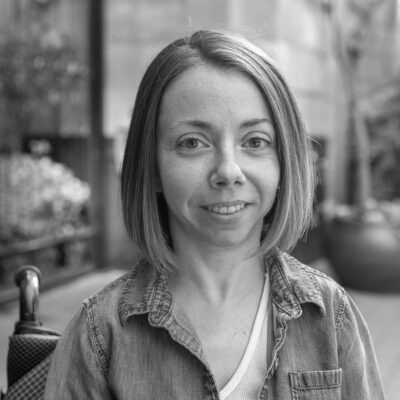SPECIALIZATIONS
Disability inclusion and the built environment
PHILOSOPHY STATEMENT
Since the adoption of the American with Disabilities Act (ADA), the architectural profession has widely adopted accessible design as the solution to the so-called “problem” of disability. Despite the progress generated by the disability justice movement and the implementation of more stringent laws, the built environment is, still today, frequently revealed as hostile insofar as to feel like an assault, a negation, or an erasure of one’s disabled identity. Experiences as such are often unintentionally constructed through the process of design — a process that tends to turn its back on the practice of care for disabled communities.
While accessible design has somewhat successfully addressed the technicalities of the interface between disabled users and their environment, it has failed to expose, let alone eliminate, the more deeply rooted ableist beliefs informing contemporary practice. Scholars and practitioners are starting to define and criticize the limitations of this reductionist approach to disability inclusion. Still, disability has yet to be fully appreciated as a form of cultural expression from which originates an essential font of knowledge possessing the potential to move the architectural practice away from ableist modes of operations towards radical inclusion.
With a status quo that can no longer be maintained by a profession claiming to practice a duty of care, can a more meaningful engagement with disability culture help us reach true equity in the built environment?
BIOGRAPHY
From a very young age, Annie experienced the world through the lens of disability. Unaware that the world around her was a product of design, she assumed the assaults on her disabled identity were a necessary part of life. Fortunately, a chance encounter with a passionate aspiring architecture student will derail the course of her life and encourage her to embark on the journey that will eventually reveal the flaws of her childhood naivety and allow her to explore disability as an essential component of a creative practice. After receiving an undergraduate degree from Laval University and a master’s degree from the University of British Columbia, Annie started her professional career at the Perkins&Will Vancouver studio where she practiced for over a decade. In addition to the work she performed as an architect, Annie investigates the different ways in which ableist believes are informing contemporary practice through a series of design studios, lectures, collaborations, and conference contributions. Her research also proposes that the knowledge embedded in disability culture can contribute to create a new framework from which radically inclusive design solutions are generated.
AWARDS & RECOGNITION
Ray Cole Architecture Scholarship, University of British Columbia, 2010
UCBeyond Scholarship, 2010
Architectural Institute of British Columbia Scholarship, 2010
Alumni Henry Elder Prize, University of British Columbia, 2010
Alpha Rho Chi Medal, University of British Columbia, 2010
